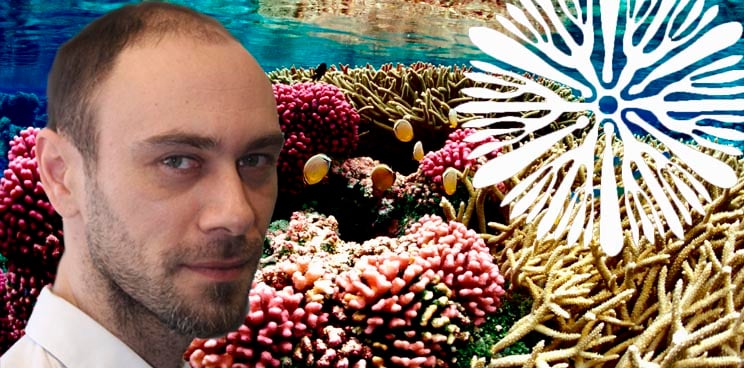The dream of Coral Biome in France is to use marine coral species to develop therapies against Cancer. We had the chance to meet Fréderic Gault, the co-founder and CEO.
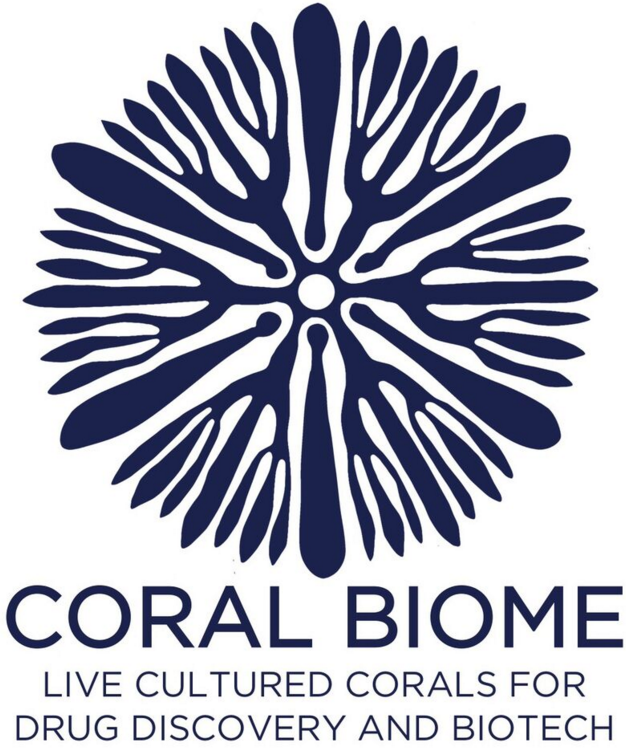 With an Education in biology followed by a specialism in aquaculture engineering, Fréderic immediately understood the importance of corals and their therapeutic potential in human health.
With an Education in biology followed by a specialism in aquaculture engineering, Fréderic immediately understood the importance of corals and their therapeutic potential in human health.
Back in Marseille, he partnered with his former teacher in biology, Yvan Perez (a Senior lecturer at Aix Marseille University). Driven by their passion for aquaculture, the two partners have matured their culture coral farm project, later joining forces in 2011 to launch the first biotech orientated coral crop farm corals in France.
Coral biome has since been awarded the Entrepreneurship Network PACA, the innovation Prize of Innovation CAP and Créa13 Prize of the General Council.

So what exactly were you trying to do with the Coral farm?
This ‘blue prospecting’ technique allows us to investigate the extraordinary variety of marine chemicals which have the potential to treat cancer, infectious and inflammatory diseases.
We then aim to lead them from the fundamental phases of development to the preclinical stage, whilst protecting endangered coral species (a growing global challenge due to coral bleaching events).
We now cultivate about 100 species of coral and have a unique expertise in bioprospecting tropical corals.
The company works exclusively on growing corals in order to generate sufficient biomass for the needs of the pharmaceutical industry, whilst at the same time preserving the balance of the marine biome.
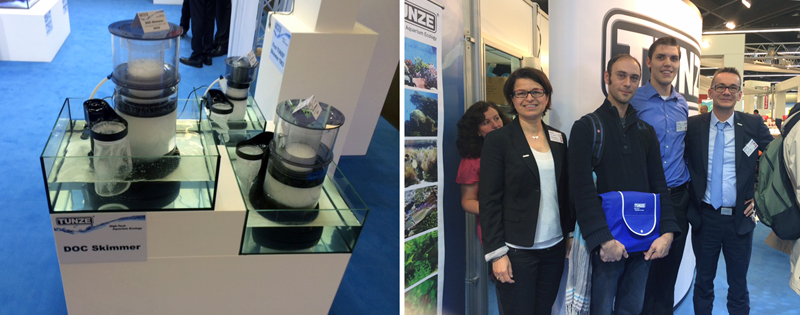
What kind of expertise is needed for this kind of Blue Biotech?
The combination of interdisciplinary expertise in aquaculture, marine biology, chemistry, physiology, cell biology and oncology has allowed us to target species of interest.
We’ve therefore been able to identify 30 highly valuable bioactive compounds in human health in the field of oncology and inflammatory disease – but also in the field of infectious and parasitic diseases (e.g. Malaria).
This interdisciplinary approach has really paid off, and allowed to highlight a powerful anti-cancer biomolecule (Palytoxin). This was done in partnership with the Institut de recherche pour le développement (IRD) and the researcher Jean Lorquin.
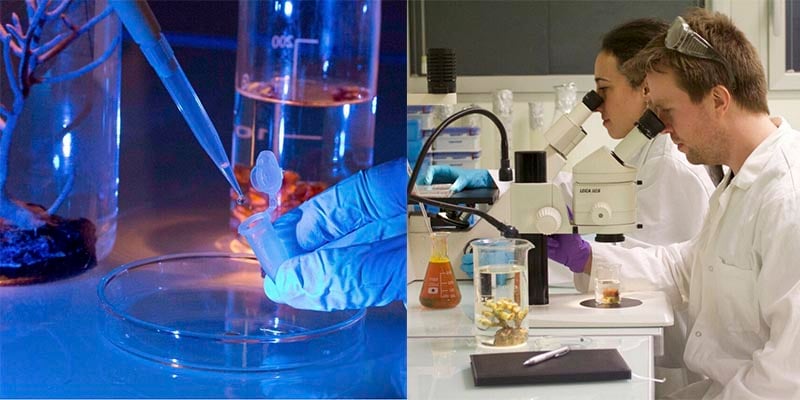
Can you tell me more about the applications in Cancer?
Palytoxin (the most powerful non-protein toxin known) is now patented in the US and in Europe for its original extraction method from soft coral and its potent anti-cancer effects. Indeed, it is 1,000,000 times more toxic to cancer cells than to healthy cells, which is a huge area of potential.
It is highly effective in different in vitro models of cancer including liquid cancers (three types of identified leukemia). Solid cancers can also be targeted, including brain, lung, prostate and breast cancers.
The activity of Palytoxin has also been highlighted in chemo-resistant cancer cells, bringing hope for many patients with recurrent types.

Biochemically, how does Palytoxin work to kill these cancers?
On-going research shows that palytoxin binds to its receptor (the Na/K pump) to induce programmed cell death called, known as apoptosis.
This is the signalling pathway by which palytoxin acts, to therefore kill cancer cells in a few hours in vitro, whereas healthy cells are much less sensitive to this signalling pathway.
A pre-clinical study has started to determine the in vivo efficacy of Palytoxin on different cancer models, as well as to study the doses and methods of administration needed to avoid side effects as part of future treatments.
Furthermore, Coral Biome is looking to couple palytoxin with antibodies – i.e. Antibody Drug Conjugate technology (ADC) – to directly administer the toxin to tumors.This would increase the efficiency of the drug, whilst reducing the number of doses needed, and also reducing potential secondary effects.
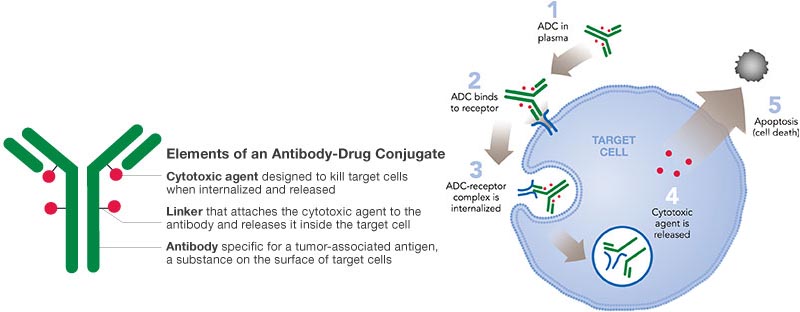
And what about your considerations for Conserving species and ethical industry research?
As marine biologists, we put the conservation of biodiversity first and foremost.
Through asexual cloning, we encourage the online sales of corals to researchers, hobbyists, and public aquariums. We believe that diversifying the number of cultured coral species available in the aquarium trade is the only alternative to bring about a decrease in the collection pressure on coral reefs.
We are also developing a living genetic database and DNA barcode system, for mapping and carrying out biological assays of coral species in the Caribbean.
The final aim of this committed program is to improve our scientific understanding of the coral biodiversity in this highly endemic area, while also increasing the appreciation and conservation of these fascinating and under-studied anthozoans.

So what’s next for Coral Biome?
The main objective now is to develop palytoxin until early phase clinical trials, in order to license the product to a pharma industry.
Thus, funds are needed to finance the regulatory preclinical study and implement the ADC technology with different partners. Coral Biome is therefore opening it’s capital and is raising €750,000 for this.
It goes without saying that the fundraiser will allow to explore the potential of corals in order to identify other anti-cancer candidate drugs, but also anti-inflammatory, anti-infective and anti-parasitic.
So with a versatile platform ahead of them, and a rich field of Biotech and Pharma research to pitch to, Coral Biome appears to have really caught the attention of media and investors alike.




